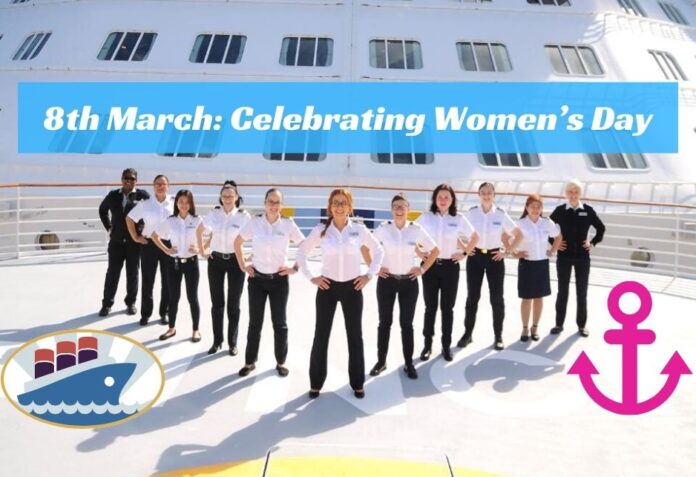
(www.MaritimeCyprus.com) Shipping has historically been a male-dominated industry and that tradition runs long and deep. However, through its global programme on the Integration of Women in the Maritime Sector, IMO is making a concerted effort to help the industry move on from that tradition and to help women achieve a representation within it that is more in keeping with twenty-first century expectations.

Another IMO film, Women at the helm, shows how the work of IMO, and others, is beginning to promote change for the better for women in shipping, and highlights first-hand experiences from some of those who have already succeeded.
The film held its official launch during the regional conference in the Republic of Korea, held in April 2013, on the development of a global strategy for women seafarers.
The conference, held in Busan, Republic of Korea, organized and funded by the Government of the Republic of Korea through the Ministry of Oceans and Fisheries (MOF), and hosted by the Korean Institute of Maritime and Fisheries Technology (KIMFT), together with IMO, adopted a declaration of intent towards the development of a Global Strategy for Women Seafarers.
The conference adopted the Busan Declaration, in which the participants agreed to forge partnerships and solicit support of government agencies, as well as international and regional bodies to facilitate the implementation of a Global Strategy for Women Seafarers.
IMO’s programme on the Integration of Women in the Maritime Sector (IWMS) has a primary objective to encourage IMO Member States to open the doors of their maritime institutes to enable women to train alongside men and so acquire the high-level of competence that the maritime industry demands. The IWMS programme includes but is not limited to, strengthening national and regional capacities through gender-specific fellowships; facilitating access to high-level technical training for women in the maritime sector in developing countries; and facilitating the identification and selection of women by their respective authorities for career development opportunities in maritime administrations, ports and maritime training institutes.
Regional harmonization has been a second key priority under this programme, resulting in the establishment, through IMO support, of seven regional associations for women in the maritime sector across Africa, Asia, the Caribbean, Latin America, the Middle East and the Pacific Islands. Access to these regional networks have provided members with a platform to discuss gender issues; a golden thread of worldwide maritime communication and improved implementation of IMO instruments.
Things are definitely getting better in the cruise industry: Women now make up 18 to 20% of the workforce. But there’s still a long way to go. Of the more than 300 passenger cruise ships worldwide, fewer than a dozen have woman captains at the helm and it’s still a rarity to find women in the upper echelons of the cruise industry, since they only account for 5.4% of officers.
Capt. Wendy Williams
Staff Captain of Anthem of the Seas, she took the path less traveled and is one of the women rising through the officer ranks at Royal Caribbean. Her responsibilities include being responsible for overall ship maintenance, security on-board and looking after the navigation officers on the bridge. She is one of the most popular women seafarer and her appointment made news all throughout the world.
Captain Sarah Breton
She became the first female captain in P&O Cruises’ 173-year history and the only woman ever to hold that exalted position on any UK cruise ship. She started her career at sea when she was 16 with a four-year cadetship.
Captain Lis Lauritzen
Captain Lauritzen masters the Vision of the Seas. She got the inspiration to be a sailor from her father who was a sailor with Mærsk Line. She spent the first ten years of her career on various cargo ships and slowly rose through the ranks and got a permanent command on Vision on 10th August 2011.
Captain Margrith Ettlin
She became the first female captain to be at helm of a Silversea luxury cruise ship in its 20 years history. She is a Swiss national with extensive maritime experience in remote regions, including the Arctic and Antarctica.
Capt. Belinda Bennett
At 39 Belinda Bennett, a British citizen, became the Windstar’s first female and black captain. She handles and commands a crew of over 100 and steers a ship carrying over 140 passengers.
IMO continues to support the participation of women in both shore-based and sea-going posts, in line with the goals outlined under the United Nations Sustainable Development Goal 5: “Achieve gender equality and empower all women and girls”, under the slogan: Training-Visibility-Recognition.
The testimony of the IMO’s gender and capacity-building programme is that empowering women fuels thriving economies, spurs productivity and growth, and benefits every stakeholder in the global maritime community.





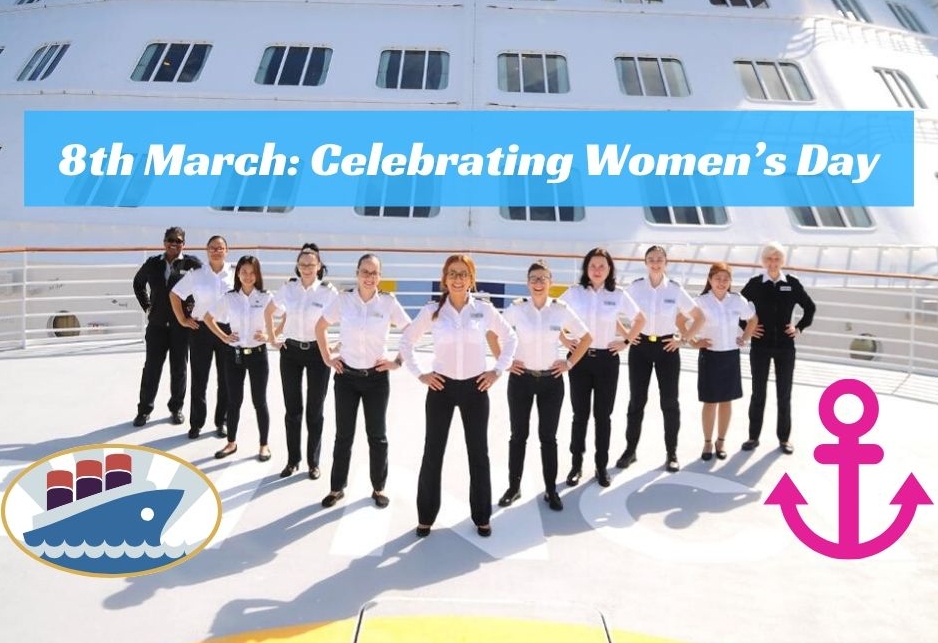
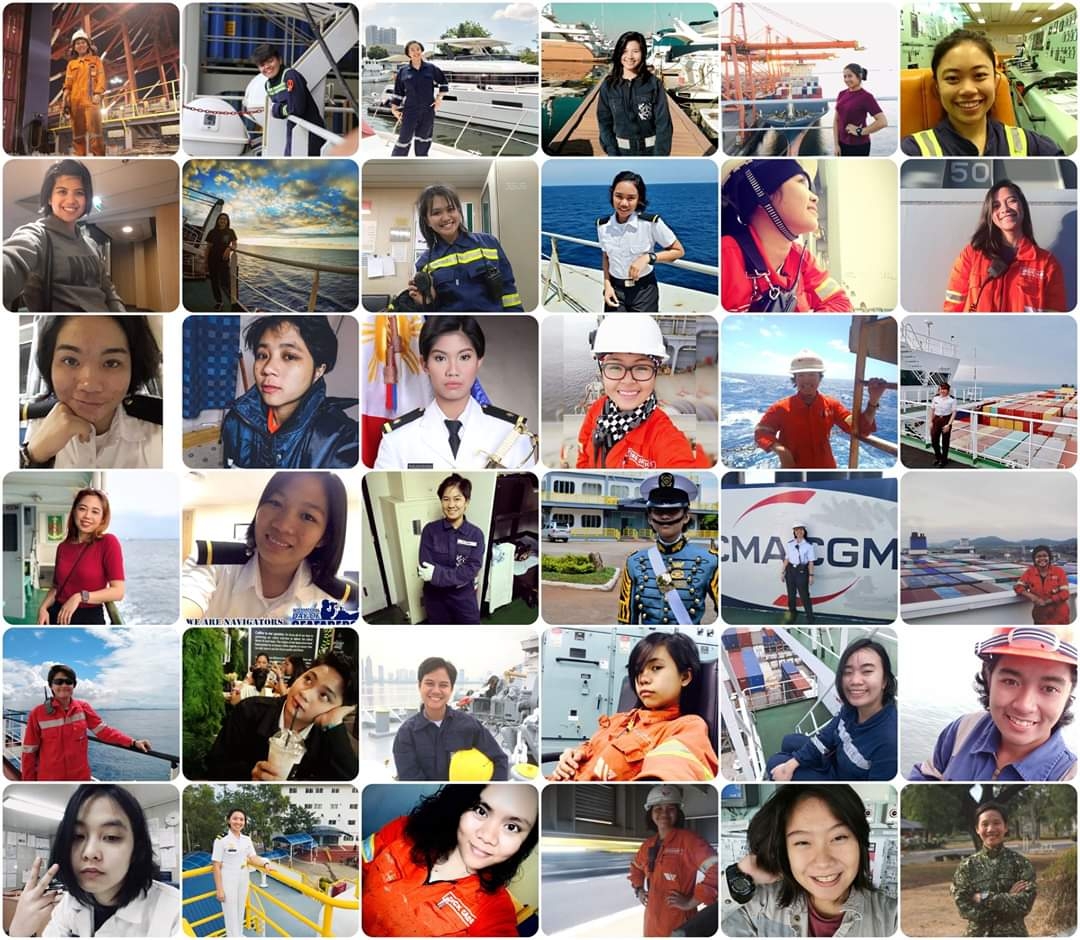
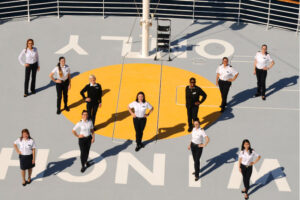
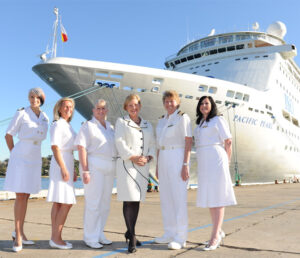
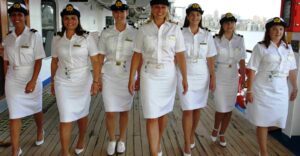















I believe the date is 7th March!
Hi Bill,
No, actually international Women's day is the 8th of March !
Best regards
Many thanks for correction
8th of March
The United Nations began celebrating International Women's Day in the International Women's Year, 1975. In 1977, the United Nations General Assembly invited member states to proclaim March 8 as the UN Day for women's rights and world peace. The theme for International Women's Day (8 March) 2020 is, I am Generation Equality: Realizing Women's Rights. The theme is aligned with UN Women's new multigenerational campaign, Generation Equality, which marks the 25th anniversary of the Beijing Declaration and Platform for Action.